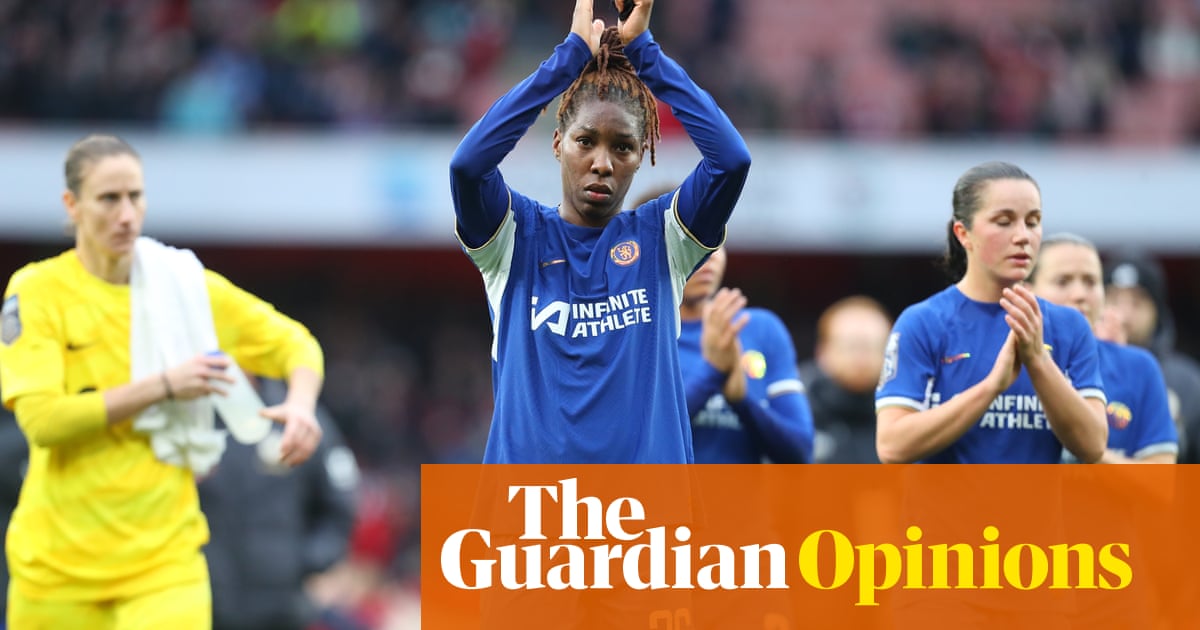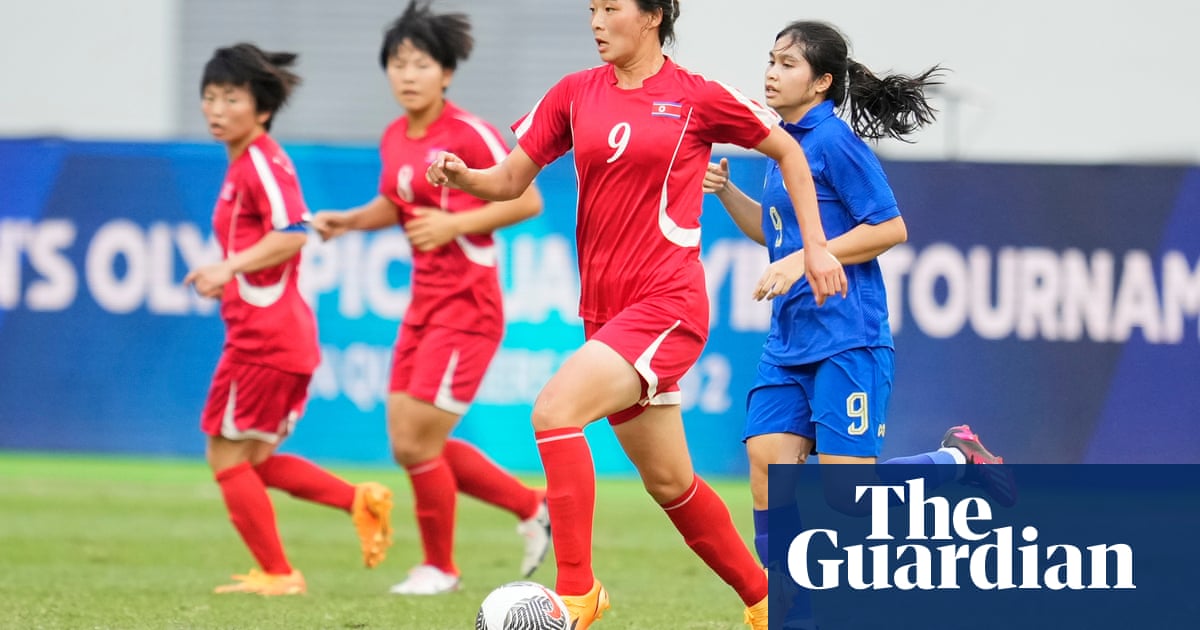
What do Alex Scott, Anita Asante, Rachel Yankey, Lianne Sanderson, Mary Phillip, Jess Carter, Lauren James and I have in common? You may quickly reach the answer that we are all women of colour. That’s correct, but more importantly the common thread is our individual and team achievements playing for the best women’s football teams, namely Arsenal and Chelsea, with multiple domestic and international trophies and 428 (and counting) collective England appearances between us.
Put simply, we have unquestionably been among the best in class and judging by the performances of James and Carter in recent years, diverse women of colour in football will continue to be among the best. There are certainly no doubts about whether we were or are good enough.
We represent the successful backdrop and context in which we must view the well-documented problem of a distinct lack of diversity in the UK women’s game. If so many women of colour were part of the best in class at Arsenal, Chelsea and England, why has there been such a departure from what the “best” or “good enough” represents.
If, like me, you saw the Arsenal women’s team photo featuring no women of colour and you felt deeply uncomfortable, I’d like to positively contribute to how we identify the causes and suggest a change in approach to player recruitment. It is not a new problem. Over recent years, there has been a lot of commentary on the lack of diversity in the women’s game due to professionalisation creating a geographical disconnect with areas where diverse talent has historically been discovered.
There has been a drop off in the number of young girls from diverse backgrounds in academies. However, this does not mean diverse talent does not exist. What it means is diverse talent is not always being selected to form the best teams in academies and first teams. So why is diverse talent no longer being chosen?
This is an emotive topic that often leads many to reduce players from diverse backgrounds to an assessment of whether they are “good enough” to be selected. After all, no one wants anyone to be selected because of their race. I would suggest, given the successful diverse class of women above, it is insulting to assume players of diverse backgrounds are not good enough to be chosen for the best women’s teams in this country. Every player, whatever their race, has to be chosen as good enough until proven otherwise.
I will focus on the word chosen to emphasise the conscious and unconscious choices that are made when recruiting and selecting players. At the highest level of women’s football only the best can be chosen to fill squads of typically 25 players. This means coaches, sporting directors and recruitment teams have a difficult task.
So how do coaches, sporting directors and recruiters decide who is best? These choices are often subjective, formed with conscious and unconscious bias and are often taken from a narrow talent pool or narrow view of what best looks like.
The Arsenal manager, Jonas Eidevall, has been at the club since 2021 and signed two diverse players in his first transfer window in Nikita Parris and Mana Iwabuchi. It did not work out for them for various reasons and so the club ended up with the all-white team photo for this season. Eidevall has admitted it is a problem and that more needs to be done to rectify it. Arsenal said: “It’s a priority for the club to continue to drive greater diversity and inclusion and create a sense of belonging for everyone connected to the club.”
Other clubs have done better and the Chelsea women’s coach, Emma Hayes, has recently made the signings of Kadeisha Buchanan (Canada), Ashley Lawrence (Canada) and Mia Fishel (USA). All women of colour. All players who should rightly be considered “good enough” and best in class for their position. Chelsea have access to a number of options around the world and selected diverse women.
If we all considered the best choices to be people that look, sound and think like us, we would never have any diversity and you are limiting your capacity for success. We have a responsibility to always consider what is different to us may actually be the best.
I speak from personal experience. Between 2021-2022, as the first sporting director of Angel City, I was tasked with the huge job of recruiting a team based in Los Angeles. I had to start from scratch with the privilege of building a team of 25 players. This represented 25 conscious choices of what I considered best and good enough for each position in the team.
Football recruitment is not always easy and often the players you want you’re not able to recruit. Often these decisions are dependent on players’ desire to move, salary demands, relationships with agents, life decisions of players etc, etc. However, if your starting place when considering three to five players per position is as broad as possible, the player you choose is far more likely to have a different profile.
It was important to use the resources available to do a global search. I started from working with my team to form a list of the best players in the world and across the USA. I was fishing in as big a pool as possible rather than a small pool I was familiar with.
Angel City did not get every player I attempted to recruit, but it did lead to a diverse team of 25 players from all backgrounds, races, sexual orientation and beliefs. Those players had shown to different degrees they were good enough to play for their country or successful teams. I was recruiting them to give them the opportunity to keep proving their best at the highest level of professional football.
Angel City have players from black, mixed heritage, Asian, native American, Middle Eastern, American and European backgrounds, competing in one of the best women’s leagues in the world. Crucially, this team’s diversity is reflective of the wonderfully diverse fanbase in Los Angeles who see themselves represented in their team. We can all agree that when a fanbase and community connects with its team in a way that makes fans feel seen and represented, magic is created. Angel City narrowly missed out on reaching the playoffs in their first season and in their second this year went one step further to reach the playoffs. Success and diversity coexist and go hand in hand.
I am proud that diversity, inclusion and success are part of my legacy at Aston Villa Women and Angel City FC and it will continue to be key to how I will advise the recruitment of sporting directors across the future clubs owned by Mercury 13, an investment group I have joined as an investor and adviser committed to a new re-imagined future for women’s football.
Coaches and recruiters in the women’s game have a responsibility to move away from lazy player recruitment choices that reflect a narrow view of what is best and instead adopt a wider recruitment approach that will inevitably lead to consideration of diverse players as the best options for the job. The fans within a diverse multicultural world of football in the UK deserve a team that represents diverse choices as the best choices. Being diverse and best cannot continue to be mutually exclusive.
After all, we are all guided by the fact that some of the best in class at all levels of football are diverse. The future of women’s football should continue to reflect that.












